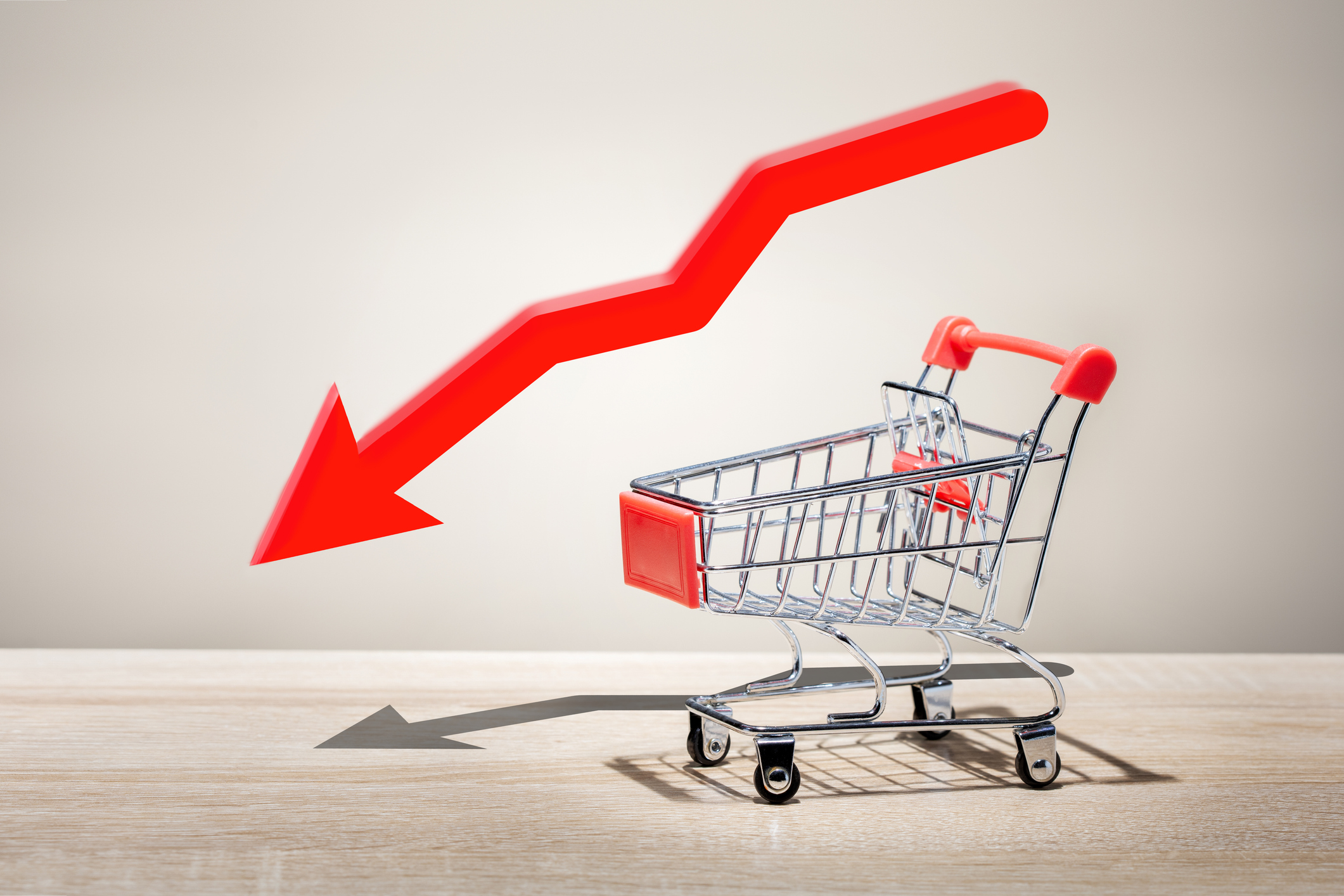Food price inflation drops to lowest level in more than two-and-a-half years
Food prices are rising at their lowest rate since October 2021. Could this result in a base rate cut next month?


Get the latest financial news, insights and expert analysis from our award-winning MoneyWeek team, to help you understand what really matters when it comes to your finances.
You are now subscribed
Your newsletter sign-up was successful
Want to add more newsletters?

Twice daily
MoneyWeek
Get the latest financial news, insights and expert analysis from our award-winning MoneyWeek team, to help you understand what really matters when it comes to your finances.

Four times a week
Look After My Bills
Sign up to our free money-saving newsletter, filled with the latest news and expert advice to help you find the best tips and deals for managing your bills. Start saving today!
Food prices are rising at their lowest rate since October 2021, adding to expectations that the Bank of England will be able to cut interest rates at its next meeting in June.
According to figures from research firm Kantar, grocery price inflation has dropped to 2.4%, slowing for the 15th month in a row from April’s 3.2%.
The fall comes ahead of the release of official inflation figures on Wednesday, which is expected to show a significant drop in price rises, potentially falling below the Bank of England’s 2% target.
MoneyWeek
Subscribe to MoneyWeek today and get your first six magazine issues absolutely FREE

Sign up to Money Morning
Don't miss the latest investment and personal finances news, market analysis, plus money-saving tips with our free twice-daily newsletter
Don't miss the latest investment and personal finances news, market analysis, plus money-saving tips with our free twice-daily newsletter
Fraser McKevitt, head of retail and consumer insight at Kantar, said: "Grocery price inflation is gradually returning to what we would consider more normal levels.”
However, Kantar said cheaper supermarket own-label lines continue to prove popular and are growing faster than brands, accounting for more than half of total spending.
This is unusual, added McKevitt, as “typically, an inflation rate of around 3% is when we start to see marked changes in consumers' behaviour”. Usually shoppers trade up to more expensive items when the rate goes below 3% and trade down to cheaper own-label brands when the rate is higher.
"However, after nearly two-and-a-half years of rapidly rising prices, it could take a bit longer for shoppers to unwind the habits they have learnt to help them manage the cost of living crisis," McKevitt said.
The fall in grocery price inflation and a potential decrease in overall inflation on Wednesday could see the Bank of England make a much-anticipated cut to interest rates after hiking rates 14 times since December 2021 in a bid to cool rising prices. Inflation topped 11% towards the end of 2022.
The consumer price index measure of inflation was 3.2% for March, according to the Office for National Statistics, with Capital Economics believing the data on Wednesday (22 May) will show a reading of 1.9%.
Ashley Webb, UK economist at Capital Economics, told MoneyWeek: “Wednesday’s release of April’s CPI inflation data could be momentous if we’re right in thinking that inflation fell from 3.2% in March to below the 2% target for the first time in three years. We have been forecasting this since early 2023.”
Will interest rates fall?
Interest rates have been held at their 16-year high of 5.25% for the last six MPC meetings.
On May 20, the Bank of England gave its strongest hint yet that interest rates could be lowered this summer after the central bank’s deputy governor Ben Broadbent said in a speech that a base rate cut over the summer was "possible".
Capital Economics predicts that the first rate cut will happen at the next MPC meeting, on 20 June. It also thinks interest rates will fall from 5.25% now to 3% next year.
The Kantar figures additionally showed that Ocado was again the fastest growing grocer over the 12 weeks to May 12, with sales up by more than 12%, while Lidl reached a new record-high market share of 8.1%.
Britain's biggest grocer is Tesco with a 27.6% share of the market, according to Kantar.
Get the latest financial news, insights and expert analysis from our award-winning MoneyWeek team, to help you understand what really matters when it comes to your finances.
Chris is a freelance journalist, and was previously an editor and correspondent at the Financial Times as well as the business and money editor at The i Newspaper. He is also the author of the Virgin Money Maker, the personal finance guide published by Virgin Books, and has written for the BBC, The Wall Street Journal, The Independent, South China Morning Post, TimeOut, Barron's and The Guardian. He is a graduate in Economics.
-
 Should you buy an active ETF?
Should you buy an active ETF?ETFs are often mischaracterised as passive products, but they can be a convenient way to add active management to your portfolio
-
 Power up your pension before 5 April – easy ways to save before the tax year end
Power up your pension before 5 April – easy ways to save before the tax year endWith the end of the tax year looming, pension savers currently have a window to review and maximise what’s going into their retirement funds – we look at how
